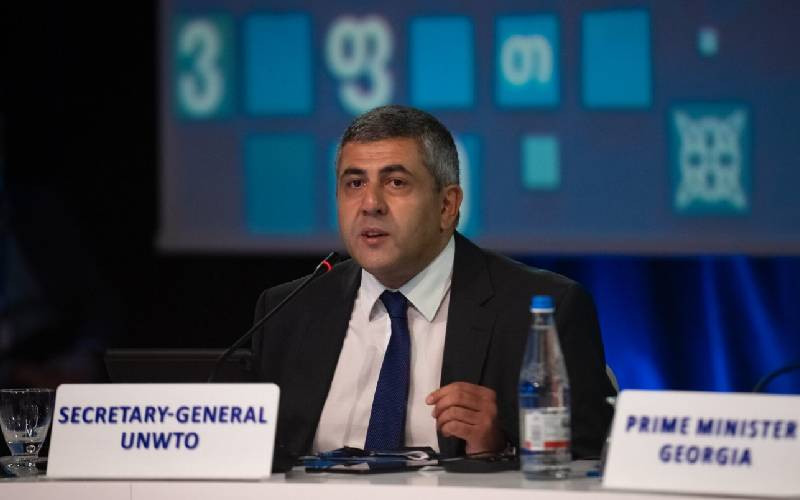NAIROBI, KENYA: As vaccines roll out more broadly, and countries begin to get the coronavirus pandemic under control, attention is turning to the world’s oldest deadliest disease- malaria. A new youth-focused creative campaign powered by African stars dubbed ‘draw the line’ against malaria has been launched.
The campaign is to inspire young people to call on their leaders to push for political action to end malaria within a generation.
Some of the African stars leading the campaign include Eliud Kipchoge, Kenyan Olympic Gold- medallist and marathon world record-holder, Siya Kolisi, Captain of the South African National Rugby Team, the Springboks, Dr Omotola J Ekeinde, Nigerian actress and philanthropist and Sherrie Silver, award-winning Rwandan-British choreographer
Others are Osas Ighodaro, Nigerian-American actress and producer; Saray Khumalo, South African explorer; and Láolú Senbanjo, a global artist from Nigeria and Art Director for the campaign.
“I believe in the power of human potential and our ability to change the world, because no human is limited. Malaria has no place in our lives today. This disease has stolen from us for too long, stopping people from working and children from going to school. Even now, malaria is still taking the life of a young child every two minutes. We can change this; we can overtake this preventable, treatable disease and end it in my lifetime. Join me and let’s draw the line against malaria once and for all.” athlete and Olympic Gold Medallist Eliud Kipchoge says.
In Kenya, Malaria accounts for 1 per cent of all cases and 3 per cent of all deaths across the world, while 100 per cent of the Kenyan population are considered at risk with 70 per cent living in high transmission areas.
The campaign reflects the energy, talent, and cultural influence emanating from the African continent with references to art, fashion, music, sport, and entertainment.
It also combines an interactive digital platform at zeromalaria.org and is brought to life through a powerful film highlighting young people taking charge of their lives and refusing to allow malaria to steal their futures.
With 74 per cent of Africans now aged under 35, the youth contingent are powerful agents of change and the campaign represents a rallying cry for them to step up action in the fight against malaria which claims the life of a child every two minutes.
Although 90 per cent of life-saving malaria prevention campaigns were delivered as planned in 2020, the World Health Organization (WHO) has warned that disruption to malaria diagnosis and treatment could lead to thousands of additional deaths across the African continent.
Before the COVID-19 pandemic half of the world’s population were already living with the threat of malaria and, despite promising progress since the beginning of the millennium, the parasite is fighting back.
According to the most recent WHO World Malaria Report, 229 million new infections and over 400,000 malaria deaths were reported in 2019, with majority deaths being young children under five.
Dr Abdourahmane Diallo, CEO of RBM Partnership to End Malaria says: “Countries held the line on malaria during 2020 – and this year we must draw the line for good. Long-time investments in the malaria fight continue to pay dividends and are pulling double duty during the pandemic.
By strengthening our health care systems, we can better respond to both new and existing health threats.
The Draw The Line Against Malaria campaign aims to inspire a new generation to join the Zero Malaria Starts With Me movement, supporting the African Union’s (AU) Catalytic Framework to end AIDS, TB, and Eliminate Malaria in Africa by 2030, and ALMA’s Malaria Youth Army.
 The Standard Group Plc is a multi-media organization with investments in media
platforms spanning newspaper print operations, television, radio broadcasting,
digital and online services. The Standard Group is recognized as a leading
multi-media house in Kenya with a key influence in matters of national and
international interest.
The Standard Group Plc is a multi-media organization with investments in media
platforms spanning newspaper print operations, television, radio broadcasting,
digital and online services. The Standard Group is recognized as a leading
multi-media house in Kenya with a key influence in matters of national and
international interest.
 The Standard Group Plc is a multi-media organization with investments in media
platforms spanning newspaper print operations, television, radio broadcasting,
digital and online services. The Standard Group is recognized as a leading
multi-media house in Kenya with a key influence in matters of national and
international interest.
The Standard Group Plc is a multi-media organization with investments in media
platforms spanning newspaper print operations, television, radio broadcasting,
digital and online services. The Standard Group is recognized as a leading
multi-media house in Kenya with a key influence in matters of national and
international interest.









